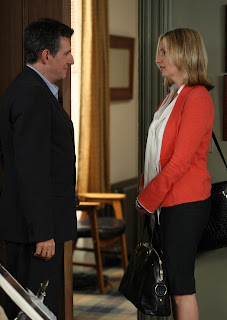 In my life, I fiercely argued with people about two movies.
In my life, I fiercely argued with people about two movies. In one case (Breaking the Waves by Lars Von Trier) I was defending the film, in the other one (Fight Club by David Fincher) I was pulling it to pieces. There is something, in Fincher’s cinema, which gets terribly on my nerves. I am ready to admit that this could be a personal matter, since the guy is definitely able to make movies, but at the same time I think I have the right to say that his cinema doesn’t talk to me AT ALL and that I find it IMMENSELY boring. Yesterday night I made a new effort and, with the best intentions, I went to see The Social Network. And guess what.
Everybody knows Facebook, but maybe less people are aware of the bleak history behind its creation. In 2003, Mark Zuckerberg, a 19 years old geek from Harvard, dumped by his girlfriend and looking for some kind of revenge, creates in just a couple of hours an internal network where all the Harvard guys can choose the “hottest” Harvard girl. Impressed by what he has been able to do, he‘s approached by the twin brothers Winklevoss, who are looking for somebody helping them to develop an idea for a social network to be used at Harvard. Zuckerberg accepts their proposal but, as a matter of fact, creates from that same idea a new kind of social network, The Facebook, which has a striking success not only among Harvard students, but also among students from Columbia, Stanford and other universities in the world. From universities to the rest of the planet, and from few thousands to 500 million “friends”, it is just a question of (short) time. The process is not a smooth one, though. The Winklevoss brothers decided to sue him in court, as well as Eduardo Severin, Zuckerberg’s only friend. A guy who helped him launch the site but who’s been put aside after the arrival of Sean Parker, creator of Napster and smart entrepreneur able to provide Zuckerberg with huge amount of capitals and a bit of social life.
And this is the story of Mark Zuckeberg, youngest billionaire on earth, and possibly most isolated human being on the same planet. The End.
The first scene of the movie, a super fast and super sharp dialogue between Zuckerberg and his girlfriend, let me think for a moment that well, this could be a very interesting movie. The modern epic/greek tragedy all the reviews I have read were telling me about. Quite soon, though, I realized that the first scene was also the best one of the entire movie. No sign whatsoever of the passionate tale I was waiting for, but just the feverish account (feverish because Fincher tries to make it interesting proposing the sequences as well as the dialogues at a fast pace) of a bunch of jerks from Harvard trying desperately to achieve important purposes like entering into exclusive "final clubs" of their exclusive universities (where basically they can get drunk and girls take off their clothes during ridiculous games) or creating a social network, always for their exclusive universities, not particularly to get in contact with other human beings but just to make money or to have sex with some girls or to be considered “cool” by other people.
This is not epic, this is just depressing.
I wasn’t surprised, though, because this is the typical effect of a Fincher movie on me: I don’t like the subjects he chooses for his stories, I don’t like the way he tells the stories, I think that all the characters in his movies are incredibly superficial, I think he is pretentious and boring, and I also believe he is a bit chauvinist. I don’t mind looking at movies without even a single female character, but I do mind when female characters are on the edge of parody. In The Social Network you basically have Zuckerberg’s ex-girlfriend in a couple of scenes plus a lawyer at the end that look normal, otherwise all the others girls are hysterical bitches.
Welcome to his (fight) club, not mine.
The only valuable thing in this movie are some actors performances: Jesse Eisenberg (already seen and appreciated in The squid and the whale by Noah Baumbach) is perfect as the almost autistic Zuckerberg, while Armie Hammer playing both the Winklevoss twins is quite amazing. I wasn't particularly impressed, though, by Andrew Garfield and Justin Timberlake. I hope they can do better than that in their next movies.
When I think about Fincher, I think about these lyrics by a Smiths song, Panic:
Burn down the disco
Hang the blessed DJ
Because the music that they constantly play
IT SAYS NOTHING TO ME ABOUT MY LIFE
Hang the DJ! Hang the DJ! Hang the DJ!
I just need to replace disco with movie, and DJ with film-maker.
That's all.
 Non so come, certe volte, ho delle idee bizzarre.
Non so come, certe volte, ho delle idee bizzarre. 







